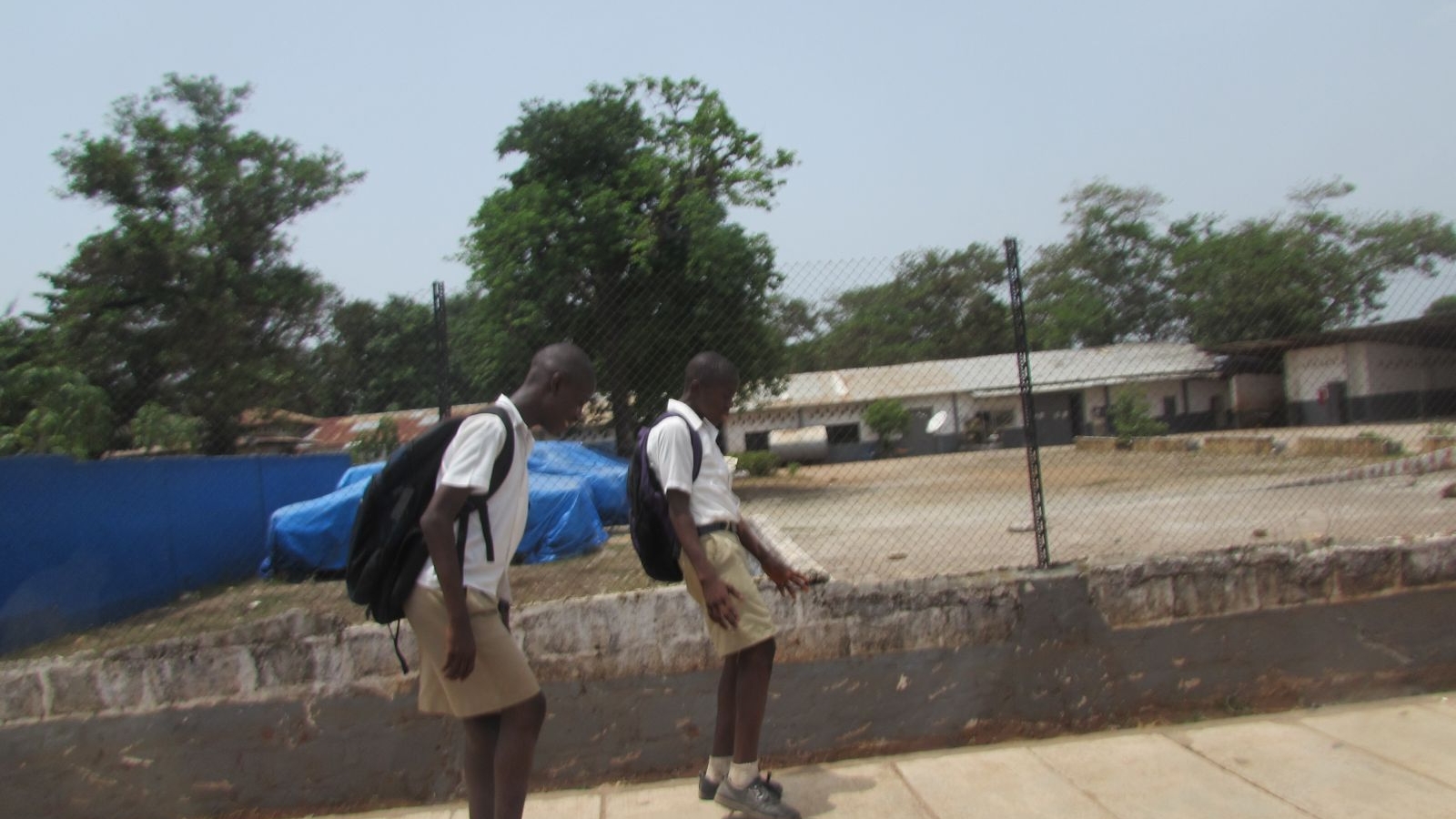This article was originally published on Ebola Deeply.
By Cinnatus Dumbaya
Long queues for public transport, the price of school uniforms, and insufficient access to clean water—just three of the reasons why school pupils and their parents in Sierra Leone say that returning to classes hasn't been easy in Sierra Leone's capital, Freetown.
Freetown resident Joseph Koroma decided not to send his 7-year-old son back to school when classrooms reopened in April. Concerned that other parents might not be as vigilant as him in keeping Ebola at bay, he chose to keep his son home. "It is too risky to send my boy to school during this period," Koroma said. "We all know children are very playful by nature, and we still have the threat of Ebola hanging over us like a vulture, waiting."
Contact with kids from different homes is not the only reason that makes Joseph hesitant. “Even my two teen girls, who have resumed school, always complain about the inconveniences they face in accessing public transportation to go to school and come back home. The girls have to wait for over an hour or two in a long queue to get the bus.”
Overcrowded Public Transport
Monica Kamara, 15, a student at a secondary school for girls in western Freetown said she travels every day from Calaba Town, in the extreme eastern part of Freetown.
“I have to wake up as early as 5 a.m. to catch the poda poda [a shared passenger minibus] to take me to school," Kamara said. "It’s very challenging. Sometimes I get to school late. Coming back from school to home is the most difficult. I hope the government will do something about this because it does seriously affect us."
Mariama Sesay, a mother of school-age children, told Ebola Deeply that she fears overcrowded public transport might be hindering the fight against Ebola. “I am worried about our chances to end Ebola, because we seem to have gone back against all the Ebola precautionary measures," Sesay said. "We’ve been told to avoid bodily contact but you just need to see how these students fight and scrabble to get into poda podas with other passengers, and you get worried about our chances to beat Ebola."
Recognizing the growing inconveniences that many students and other commuters face in order to reach schools and offices, Sierra Leone's minister of transport and aviation, Leonard Balogun Koroma, took to the airwaves recently, announcing that authorities have ordered a shipment of 100 buses to be used by commuters in Freetown. The shipment is scheduled to arrive in late June. Until it arrives, some people will continue to dub Koroma's words as political rhetoric.
Limited Movements for Motorbike Taxis
In the northern city of Makeni, students rely solely on motorbike taxis to get around. Public bus and taxi services are limited. But as part of Sierra Leone's state of emergency, imposed by authorities last July, restrictions were placed on the movements and operations of motorbike taxis. Now, they can only run between 7 a.m. and 7 p.m., and only one passenger is allowed to ride at a time. (Previously, it was not unusual for two or three passengers to pile onto the back of a motorbike taxi.)
On a recent day in Makeni, Abdul Koroma, dressed in shiny brown khakis and a white shirt, rushed to catch a motorbike from his school in Makeni to his home village of Makomp, some 15 miles away.
"The bikes stop running at seven in the evening, so my friends and I always have to rush to get one before we are late home," he said. Reduced operating hours for motorbike taxis have also led to price increases. In some cases, students are now paying double the price they would pay one year ago.
A Need for Improved Water and Sanitation Facilities
Besides public transport challenges, students in Magburaka, near Makeni, have said they don't have access to clean water at school.
"We don't have toilets here, or any means of accessing water at school," a student at the Government Secondary School for Girls at Mathora, said. She asked to remain anonymous for fear of reprisals from school authorities. "When we [need to use] the toilet we have to go to the nearest village of Ropolon. The toilets in our boarding homes are in a bad state."
“We are very happy that schools have reopened: this is why we are calling on the government to help us with toilet and water facility here," another student, who also asked for anonymity, told Ebola Deeply. “In fact, we don’t even have enough furniture in our classes, so we are sitting four people per bench. This is risky since we have been warned to avoid body contact,” she added.
*****
*****
Cinnatus Dumbaya is a contributor at Ebola Deeply.
[Photo courtesy of Ebola Deeply]